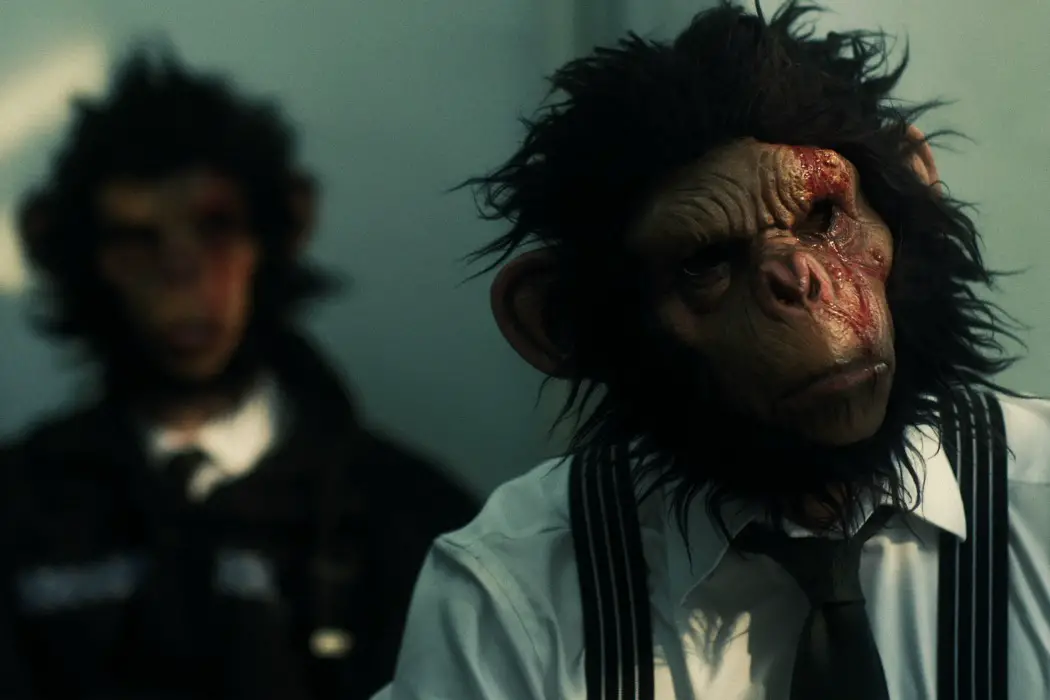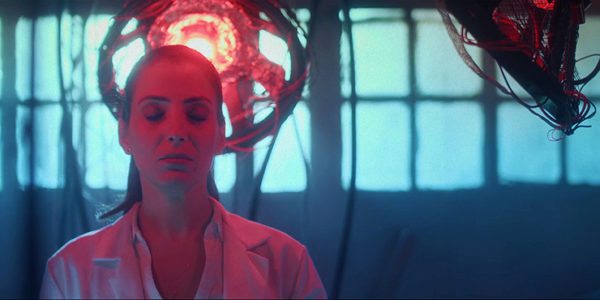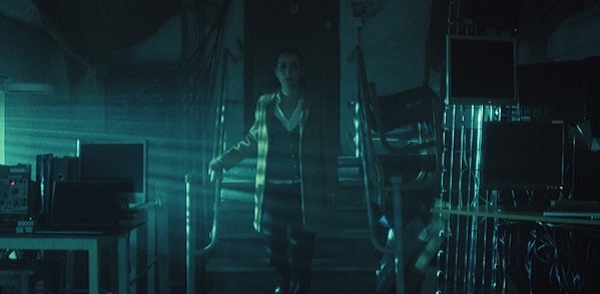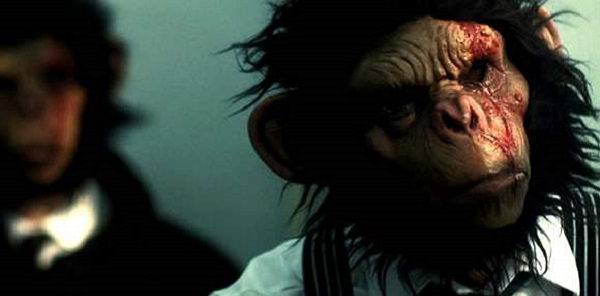ANTI MATTER: Ambitious & Original, But Ultimately Incoherent

Lee Jutton has directed short films starring a killer toaster,…
When one has a very limited budget to make a movie, one has to mold the story to suit the resources (or more accurately, lack thereof) at hand. This tends to result in a lot of horror movies that use dark shadows and fake blood to distract from the fact that the film has only one set, or talk-heavy dramas that eliminate any need for fancy overhead shots on cranes or other flashy camerawork.
Low budget science fiction, however, is a far rarer and riskier endeavor. Standouts such as Shane Carruth’s minimalist, modern time travel classic Primer compensate for their necessarily no-frills filmmaking with a lot of brainy creativity. These films show that while no amount of fancy special effects will mask a bad story, a good story can capture the imagination without needing a lot of bells and whistles.

Anti Matter, previously released in the UK under the title Worm, starts strong by leaning on the science at its center – science that, even if you don’t understand a word of it, you’ll buy for the sake of the story. But as the apparently Alice in Wonderland-inspired film takes its protagonist and its audience further down the rabbit hole, it loses focus. And as the story grows foggier, the flaws in it become clearer and clearer.
Through The Wormhole
The heroine of Anti Matter is Ana (Yaiza Figueroa), a Hispanic-American woman studying for her chemistry doctorate at Oxford. She teams up with longtime friend and crush Nate (Tom Barber-Duffy) and upper-crust punk Liv (Philippa Carson) to work on a project that results in the invention of a wormhole generator. After sending objects and animals safely through the wormholes they’ve created, the trio of scientists realize that there’s only one more thing to do before securing funding for their game-changing work: they need to see if the wormholes can safely transport humans.
Ana draws the short straw and, for the sake of their work, willingly enters the wormhole. The next day, she wakes up in bed with no memory of the experiment and both Nate and Liv treating her with distance bordering on hostility.

Soon Ana realizes that she can no longer form new memories since traveling through the wormhole, and suspects Nate and Liv of keeping the truth about what happened from her so that they can steal the project right out from under her nose. It doesn’t help that a group of animal rights activists harass Ana every time she enters her lab, or that someone broke into her room and stole all of her research. Desperate for answers, but unable to remember the few she receives, Ana spirals out of control – and so does the film.
We’re All Mad Here
Anti Matter unfolds amid an atmosphere bubbling with the rush of risk-taking experimentation, with the moody gray skies and elegant architecture of Oxford adding a deliciously noir undertone to proceedings. Ana’s chemistry with Nate is adorably and realistically awkward; their will-they-or-won’t-they relationship adds to the already tense atmosphere and keeps you invested in them even the technobabble coming out of their mouths might as well render them aliens. Liv’s no-nonsense snark provides a nice foil for both of them and keeps things from getting too soggy and sentimental. But once Ana wakes up in bed post-experiment, the story becomes far too cluttered and confusing.

The three lead actors, while enjoyable to watch together at the beginning of the film, struggle with the script post-wormhole; the increased tension between Ana, Nate and Liv feels forced, as does most of the dialogue not reliant on science. Subplots involving Ana’s mother and the specter of Alzheimer’s disease and the animal rights activists on campus just feel like unnecessary distractions from what is already an excessively complicated story.
The eerie atmosphere keeps being unpleasantly punctured by Ana’s visions of a mysterious figure in a gorilla mask, which are meant to be nightmarish but end up being amusing. Needless to say, the final twist that reveals what actually happened to Ana in the wormhole ends up being a disappointment. I was left feeling confused and dissatisfied, all the more so because the film started so strong. Anti Matter begins with a bang, but it ends with a whimper.
Anti Matter: Conclusion
The ambition of writer-director Keir Burrows and producer Dieudonnée Burrows, the husband and wife team that shepherded Anti Matter to fruition on a micro budget, is admirable. I imagine that down the road, with more resources at their disposal, they could tell some wildly inventive and entertaining stories. Unfortunately, Anti Matter doesn’t quite fit the bill.
What do you think? What low-budget sci-fi films stand out in your mind as making the most of their limited resources? Share your thoughts in the comments.
Anti Matter is in theaters in the U.S. from September 8, 2017. You can find additional international release dates here.
Does content like this matter to you?
Become a Member and support film journalism. Unlock access to all of Film Inquiry`s great articles. Join a community of like-minded readers who are passionate about cinema - get access to our private members Network, give back to independent filmmakers, and more.
Lee Jutton has directed short films starring a killer toaster, a killer Christmas tree, and a not-killer leopard. Her writing has appeared in publications such as Film School Rejects, Bitch: A Feminist Response to Pop Culture, Bitch Flicks, TV Fanatic, and Just Press Play. When not watching, making, or writing about films, she can usually be found on Twitter obsessing over soccer, BTS, and her cat.













